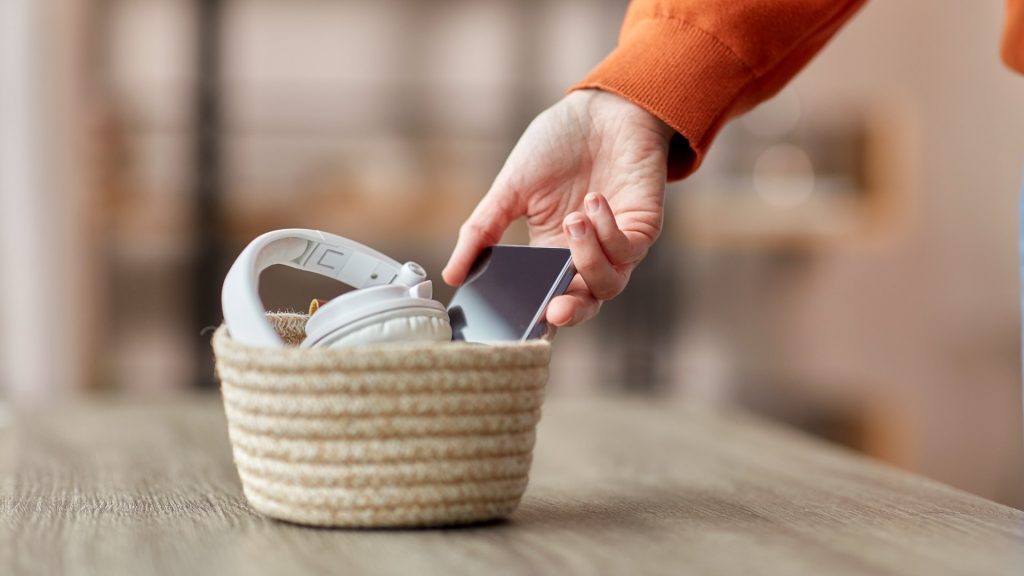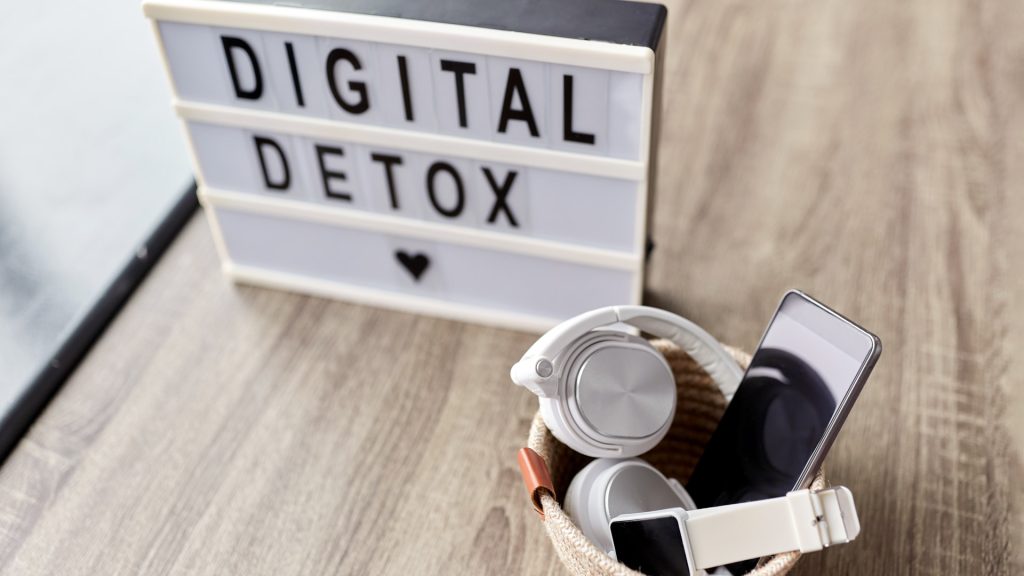Digital Detox: Switch OFF to switch ON
- READING TIME 4 MIN
- PUBLISHED July 19, 2024
- AUTHOR Donna
Key takeaways
- A digital detox is a planned break from electronic devices to improve well-being.
- Taking regular breaks from digital devices can reduce stress, enhance well-being and improve sleep quality.
- A digital detox encourages more meaningful face-to-face interactions, helping you feel more connected to the people around you.
Switch OFF to switch ON
We’ve probably all heard about it at least once or even tried to do it ourselves – and no, we’re not talking about some unusual hobby or a new medicine, we’re talking about something that could actually change your life for the better. And if not change, then at least make you rethink your daily routine and its impact on your general well-being. We’re talking about the famously infamous digital detox.

We know what you’re thinking – how could switching off (almost) all my electronic devices have a positive impact on my general well-being? Wouldn’t that make me more anxious and effect my daily life in a rather negative way? And isn’t it completely impossible since I MUST use my computer, smartphone, etc., at work for example? Besides – how would people reach me? Wouldn’t it be counterproductive and stressful to be disconnected?
No worries there. As terrifying as a digital detox might sound, it doesn’t mean you should switch off all your electronic devices completely and forever. It only means you switch them off for a certain period, for example, for one, two, three, or more days. Or even just for a couple of hours. It’s totally up to you.
The digital detox: the what’s and why’s
First things first: what is a “digital detox”?
A digital detox refers to a period during which a person refrains from using electronic devices (smartphones, computers, tablets, etc.). This involves taking a break from the internet, social media, and other digital communications, ranging from a few hours a day to several days or even weeks.

The goal is to reduce stress, reclaim time and improve mental and physical health. But how could such a break improve our well-being?
We’ve done our research and summarized the most important benefits of a digital detox.
How can YOU benefit from digital detox?
No, we aren’t only talking from our own personal experience. Several scientific studies have examined the positive effects of a digital detox and have found a range of benefits.
Here are a few examples:
- Enhanced well-being
A study1 published in the journal Computers in Human Behavior highlighted that participants who limited their social media use to 30 minutes per day experienced significant improvements in well-being, including reduced feelings of loneliness and depression.
- Better sleep
A research2 in the journal Sleep Health showed that reducing screen time before bed improved sleep quality. Participants who refrained from using digital devices at night reported falling asleep faster and experiencing better overall sleep.
- Increased productivity
A study3 conducted by the University of California, Irvine, found that employees who took scheduled breaks from email and other digital communications experienced less stress and were able to focus better on their tasks, leading to increased productivity.
- Enhanced social interactions
Moreover, digital detox can also lead to enhanced social interactions. A study4 from The Journal of Social Psychology revealed that participants who took a break from social media reported higher levels of face-to-face interactions and felt more connected to their communities.

Sign me up!… oh, wait, but how?
As much as we’d like to, we have to tell you that there’s no secret recipe for a digital detox. Simply switch off your electronic devices for a few hours or even days and observe how your life slowly begins to change. And don’t forget to share your experience with us afterwards!

REFERENCES
- Hunt, M. G., Marx, R., Lipson, C., & Young, J. (2018). No More FOMO: Limiting Social Media Decreases Loneliness and Depression. Journal of Social and Clinical Psychology, 37(10), 751-768.
- Exelmans, L., & Van den Bulck, J. (2016). Bedtime mobile phone use and sleep in adults. Social Science & Medicine, 148, 93-101.
- Mark, G., Iqbal, S. T., Czerwinski, M., & Johns, P. (2016). Focused, Interruption Recovery, and Flow: A Longitudinal Field Study of 57 Professionals. Proceedings of the 2016 CHI Conference on Human Factors in Computing Systems, 1969-1981.
- Roberts, J. A., & David, M. E. (2020). The social media party: Fear of missing out (FoMO), social media intensity, connection, and well-being. The Journal of Social Psychology, 160(3), 249-263.
RELATED ARTICLES
Explore more
Feed your curiosity with more content. Dive deeper and explore our selected articles, curated just for you.



